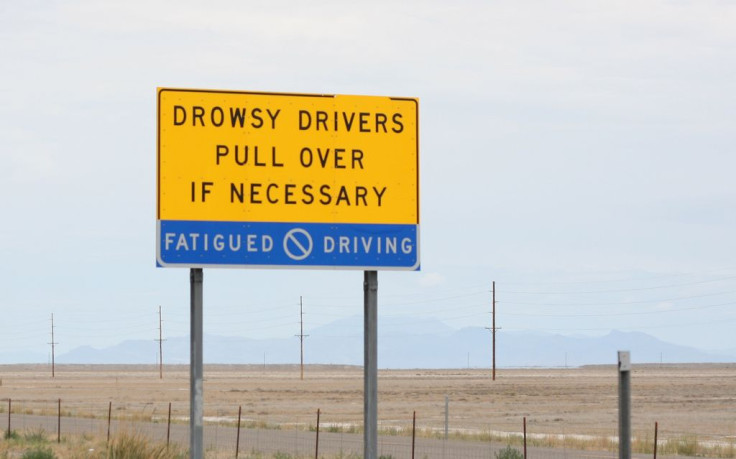Night Shift Workers Are At An increased Risk For Car Crashes, Even During Daytime Commute

Night shift workers may be at an increased risk for certain conditions, such as heart disease and type 2 diabetes, but the effects of an impaired sleep schedule can be even more devastating and immediate. A recent study conducted by researchers from Brigham and Women’s Hospital has found that people who drive home after working a night shift suffer from disruptions to their sleep-wake cycles and insufficient sleep during the night which, subsequently, results in a higher risk for drowsy driving crashes.
"Drowsy driving is a major and preventable public health hazard," said Dr. Charles A. Czeisler, chief of the Division of Sleep and Circadian Disorders at BWH, in a statement. "These findings help to explain why night shift workers have so many more motor vehicle crashes than day workers, particularly during the commute home. Night shift workers should be advised of the hazards of drowsy driving and seek alternate forms of transportation after night shift work."
Czeisler and his colleagues recruited 16 night shift workers who were asked to participate in a pair of driving sessions on a closed driving track at the Liberty Mutual Research Institute for Safety. Each participant got an average of 7.6 hours of sleep the night before the first session with no night shift work. These same participants were tested after working a night shift before the second session. Drowsiness was calculated using brief micro-sleep episodes that were measured by EEG and partial eyelid closure with slow eye movements. Driving performance was measured via near-crash events, driving sessions that were terminated due to failure to maintain control of the vehicle, and how often drivers weaved in and out of lanes.
After comparing the performance of the post-sleep drive to the post-night shift drive, researchers discovered that 37.5 percent of drivers who participated in a driving session after working a night shift were involved in a near-crash event. The majority of night shift workers also suffered from increased driver drowsiness, poor driving performance, and a higher risk for near-crashes. In fact, over one-third of post night-shift driving sessions ended when emergency braking maneuvers were required. Half of all sessions ended early after drivers lost control of the vehicle. Researchers were able to identify sleep-related impairment, on average, within the first 15 minutes of driving.
"Even veteran night shift workers were vulnerable to the risks associated with drowsy driving, and exhibited reactions similar to behaviors observed in drivers with elevated blood alcohol concentrations," said Dr. Michael L. Lee, research fellow in the Division of Sleep and Circadian Disorders at BWH. "A short commute for these drivers is shown to be potentially dangerous and the longer the drive, the greater the risk. Education about drowsy driving and its potential hazards could minimize this risk by prompting shift workers to eliminate or reduce the need to drive after night shift work, and to stop driving when their performance is impaired by drowsiness."
The risks associated with shift work are nothing to write off. A similar study that tracked the health of airline employees in Finland revealed that shift work can promote an unhealthy lifestyle, including poor diet and lack of exercise. Evidence from night shift studies have shown that an irregular sleep schedule can impact a number of physical health markers, including antioxidant activity, immune system function, and changes to blood pressure.
According to the research team, over 9.5 million Americans — 15 percent of the workforce — work either overnight or rotating shifts, while around 28 percent of drivers admit to falling asleep while driving within the past year. Since night shifts are pretty much unavoidable within certain jobs and industries, it is recommended that night shift workers consider focusing their attention on markers of health they can control, like diet, exercise, and both doctor and self-exams. They should also look into controlling their sleep schedule in regard to their work schedule.
Source: Proceedings of the National Academy of Sciences. 2015.



























